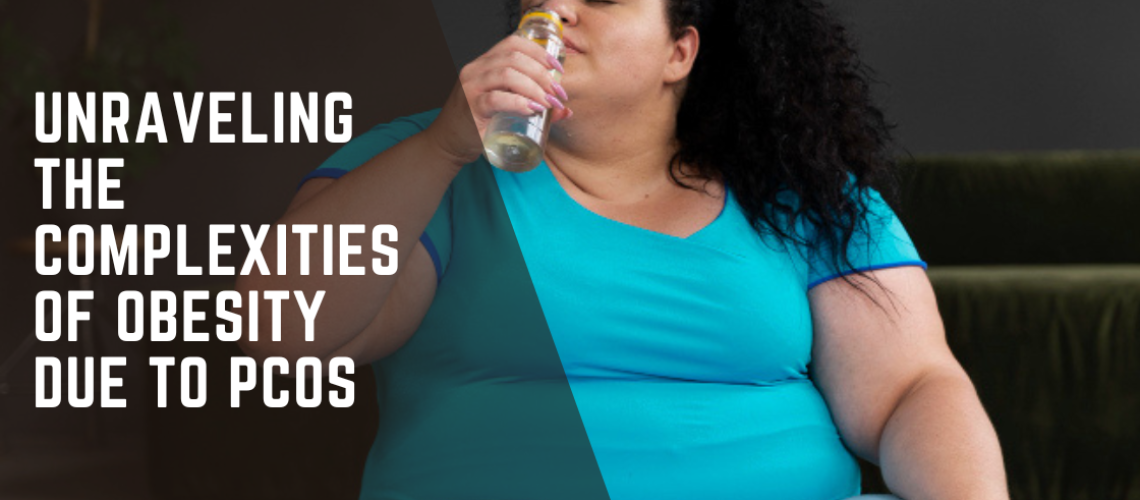Empowering Women Beyond PCOS Challenges
Polycystic Ovary Syndrome (PCOS) is a complex condition that affects millions of women worldwide, and its impact extends beyond reproductive health, often intertwining with obesity. The combination of PCOS and obesity poses significant challenges, affecting both physical and emotional well-being. Let’s delve into the numbers and facts surrounding PCOS-related obesity and explore the transformative journey to wellness.
PCOS is a leading cause of female infertility, affecting approximately 5-10% of women of reproductive age. One of the hallmark features of PCOS is hormonal imbalance, leading to irregular periods, ovarian cysts, and heightened levels of androgens. This hormonal upheaval not only disrupts the menstrual cycle but also contributes to weight gain, particularly around the abdomen.
Research indicates that women with PCOS are at a higher risk of developing obesity compared to those without the condition. In fact, up to 80% of women with PCOS are reported to be overweight or obese. The connection is multifaceted – insulin resistance, a common feature of PCOS, contributes to weight gain, while obesity exacerbates hormonal imbalances, creating a vicious cycle that can be challenging to break.
The Vicious Cycle: PCOS, Obesity, and Insulin Resistance
Insulin resistance, a key player in the PCOS-obesity connection, occurs when the body’s cells become less responsive to insulin, leading to elevated blood sugar levels. Studies show that approximately 70-80% of women with PCOS experience insulin resistance, which not only contributes to weight gain but also increases the risk of type 2 diabetes.
Obesity amplifies insulin resistance, creating a challenging environment for individuals with PCOS. The excess fat, especially around the abdomen, further contributes to hormonal imbalances, perpetuating a cycle that can lead to various health complications, including cardiovascular diseases.
Case studies
Patient 1: Malavika Manohar
Age: 28 years
PCOS Duration: 10 years
Starting Weight: 127 kgs
Malavika’s journey with PCOS was marked by challenges, including anxiety, depression, excess hair growth, and acne. Despite trying various diets and programs, she found little success before discovering ProGen. With a VLCKD plan tailored to her needs, Malavika lost 23 kgs in five months, witnessing a remarkable reduction in body fat percentage from 56.5% to 47.5%. Notably, her menstrual cycle improved, and various health parameters, such as HBA1c and cholesterol levels, showed positive changes.
Patient 2: Shruthi Shroff
Age: 20 years
PCOS Duration: 5 years
Starting Weight: 106 kgs
Shruthi’s PCOS journey involved medications and various attempts to manage symptoms, including facial hair growth, acne, and irregular periods. ProGen’s one-month program proved transformative, resulting in an 18 kg weight loss within three months. Her body composition analysis showcased a significant reduction in body fat percentage, visceral fat, and BMI. Notably, improvements in facial hair growth, acne, and regular menstrual cycles marked her overall well-being.
Patient 3: Mary Joyce
Age: 29 years
PCOS Duration: 1 year
Starting Weight: 73.3 kgs
Mary’s journey involved managing PCOS with metformin medication. Adopting the ProGen Method, she lost 9.8 kgs in a month, experiencing a reduction in body fat percentage and an increase in muscle mass. Notably, Mary’s overall well-being improved, and she continues her weight loss journey with the goal of reducing 15 kgs.
These case studies underscore the positive impact of the ProGen Method in managing PCOS and obesity. The personalised approach, coupled with a VLCKD plan, has demonstrated significant weight loss, improved hormonal balance, and enhanced overall health and well-being in these individuals.


